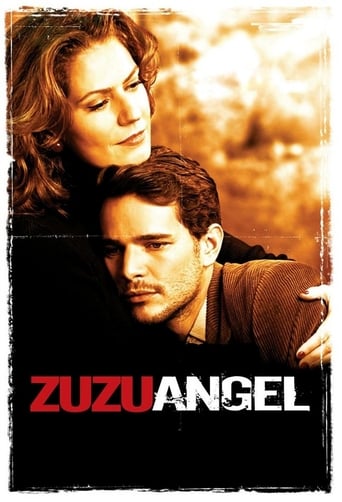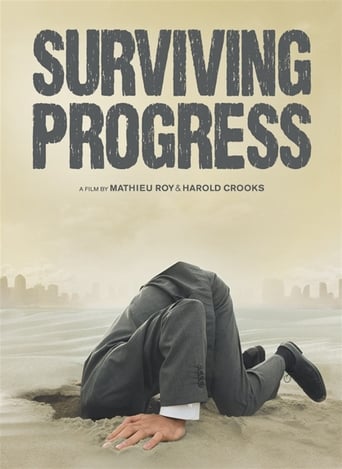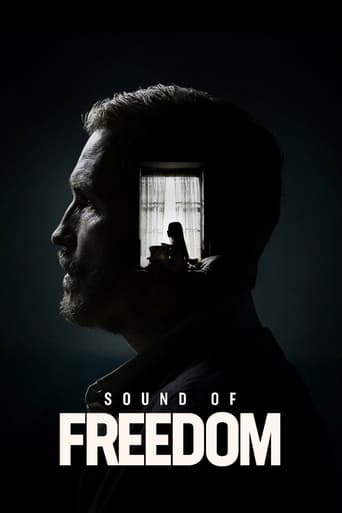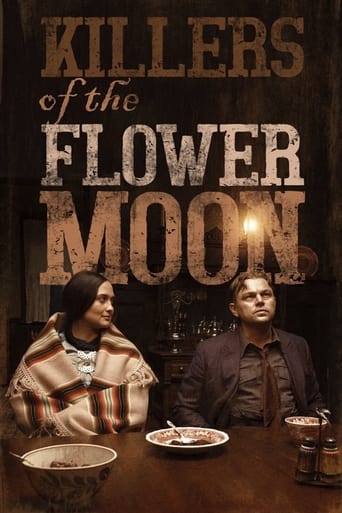Best movies like Real: The Plan Behind History
A unique, carefully handpicked, selection of the best movies like Real: The Plan Behind History Starring Emílio Orciollo Netto, Norival Rizzo, Tato Gabus Mendes, Mariana Lima, and more. If you liked Real: The Plan Behind History then you may also like: Xingu, Zuzu Angel, Jango, Joaquim, Surviving Progress and many more popular movies featured on this list. You can further filter the list even more or get a random selection from the list of similar movies, to make your selection even easier.
In May 1993, Brazil experienced one of the worst economic crises in its history. The government then decides to set up a real task force to solve the problem. Confined to a bunker as a way of shielding the operations of growing political pressures, the special economic team will have to do its best to reach agreement and create the Plano Real.
Real: The Plan Behind History
You may filter the list of movies on this page for a more refined, personalized selection of movies.
Still not sure what to watch click the recommend buttun below to get a movie recommendation selected from all the movies on this list
Zuzu Angel
Covering the last years of the famous Brazilian fashion designer in her doomed quest for justice, Zuzu Angel follows the case of her activist son Stuart's arrest, torture, murder, and subsequent corpse disposal by the military forces in early 1970s Rio de Janeiro, during the darkest era of Brazilian military regime and media censorship.
Joaquim
Brazil, 18th century. The colony of Portugal endures a decline in gold production. A Portuguese minority rules over a corrupt and autocratic society. Joaquim is an efficient soldier, famous for capturing gold smugglers. While waiting for his promotion to Lieutenant, he leaves for a risky mission in search of new gold mines - the only way to buy the freedom of Blackie, a slave he is in love with. Inspired by the true story of Tiradentes, the first leader of the Brazilian revolutionary movement.
Surviving Progress
Humanity’s ascent is often measured by the speed of progress. But what if progress is actually spiraling us downwards, towards collapse? Ronald Wright, whose best-seller, “A Short History Of Progress” inspired “Surviving Progress”, shows how past civilizations were destroyed by “progress traps”—alluring technologies and belief systems that serve immediate needs, but ransom the future. As pressure on the world’s resources accelerates and financial elites bankrupt nations, can our globally-entwined civilization escape a final, catastrophic progress trap? With potent images and illuminating insights from thinkers who have probed our genes, our brains, and our social behaviour, this requiem to progress-as-usual also poses a challenge: to prove that making apes smarter isn’t an evolutionary dead-end.
Hebe
Hebe Camargo is one of the most emblematic entertainments in Brazil. At her 60s, she went on to control her own career and, despite the criticism, the dreadful husband and the powerful and sexist bosses, she revealed herself to the public as an extraordinary woman, capable of overcoming any personal or professional crisis.
Once There Was Brasília
In 1959, disgraced intergalactic agent WA4 receives a mission: to come to the Earth and kill the president Juscelino Kubitschek on the day of Brasília's inauguration. But his ship is lost in time and lands in 2016 in Ceilândia — a Black suburb of Brasilia — on the verge of Dilma Rousseff's impeachment.
On Football
Sergio and his father, Simão, haven’t seen each other for over 20 years. On the eve of the 2014 World Cup, Sergio returns to his hometown, São Paulo, hoping to watch the games with Simão, as they used to when he was a kid. It seems to be a perfect plan for a father-son reunion: a whole month together, their schedule based on the World Cup calendar. But as the days go by, their relationship starts to wander into unknown territory and their pact to watch the entire tournament together turns into a dangerous ritual…
Polícia Federal: A Lei é Para Todos - Os Bastidores da Operação Lava Jato
2013. During Operation Bidone, the Federal Police seized a truck loaded with palm heart, which contained 697 kg of cocaine. The investigation falls on the team assembled by Ivan Romano, based in Curitiba and composed by Beatriz, Júlio and Ítalo. The traffic connections lead them to the dower Alberto Youssef and later to the former Petrobras director Paulo Roberto Costa, who reveals an immense structure involving builders and the government, in order to divert public money. As the investigation progresses, the group led by Ivan is increasingly approaching some of the country's most influential politicians.
Olga
Based upon the true story of Olga Benário, the German-born wife of Brazilian communist leader Luís Carlos Prestes. During the dictatorship of Getúlio Vargas (1930-1945) she was arrested and sent to Nazi Germany, where she was put to death in a concentration camp. After World War II began, Vargas decided to uphold the Allies.
Manda Bala (Send a Bullet)
Manda Bala (Send a Bullet) is a cinematic bullet into the cerebral cortex, a documentary that unflinchingly exploring the cycles of violence that plague Brazil's upper and lower economic classes in fits of rampant corruption and violent kidnappings. The film chronicles these cycles by utilizing highly personalized stories that reflect the growing truth about Brazil's huge economic disparities.
400 Against 1: A History of Organized Crime
The story of William da Silva Lima, the last survivor of the group that founded the Comando Vermelho at the end of the 1970s. It shows him living together with the political prisoners incurred under the same National Security Law and his leadership in the Ilha Grande Prison creating a type of unheard of conduct and solidarity in the Brazilian prisons. The film goes on to tell of the group's actions on the streets of Rio de Janeiro during the beginning of the 80s when they irritated the police with their daring robberies, as well as portraying the surprising love story between William and Tereza. The narrative weaves its way between the intimate conflict and the spectacular assaults and escapes.
Dr. Gama
Based on the biography of Luiz Gama, one of the most important characters in Brazilian history, a black man who used the laws and courts to free more than 500 slaves. Born of a free womb, Gama was sold into slavery at the age of 10 to pay off his father's gambling debts. Even as a slave, he became literate, studied and earned his own freedom, becoming one of the most respected lawyers of his time. An abolitionist and republican who inspired an entire country.
The Discovery of Brazil
O Descobrimento do Brasil (The Discovery of Brazil) is an impressive historical epic recreating Álvares Cabral’s voyage to the New World in 1500, with a score especially written by the renowned composer, Heitor Villa-Lobos. One of the earliest examples of Brazilian cinema, this film depicts the perilous journey of Pedro Álvares Cabral’s armada from Portugal to Brazil. Though somewhat rudimentary compared to other films of the period, The Discovery of Brazil distinguishes itself with its scenes of indigenous people and Portuguese explorers on the beach, and in the imaginative lighting on board the ship. But the real star is the beautiful cantata by Villa-Lobos that permeates the film.
Pedro, Between the Devil and the Deep Blue Sea
The story of Brazil’s first emperor, returning to Europe on board the English ship Warspite. The trip makes Pedro conquer his fears and face his life from a personal point of view. He goes back in time and relives outstanding moments of his earlier life – since his childhood, when in 1808 he arrived coming from Portugal with his family, until he left in the dead of the night, in 1831, running away from Brazil.
Hans Staden
On the eve of his return to Europe after an extended involuntary stay in 16th-century Brazil, the German sailor Hans Staden is captured by a hostile cannibal Indian tribe. In order to survive he tries to convince the Indians that he is not Portuguese (their enemies) but a friend of the French (their allies), and that his God would be very angry if they were to eat him.
Lula, the Son of Brazil
The true story of a working class boy who moves to the nation's financial capital at a young age and becomes one the most influential politicians in Brazilian history.
Eike: Tudo ou Nada
In 2006, when the Brazilian economy was taking off due to the discovery of oil in the pre-salt layer, Eike Batista decided to create the oil company OGX and hired the best men from Petrobras to participate in the pre-salt auction. But megalomaniacal plans and a series of misguided decisions and alliances cause their empire to crumble as spectacularly as it had grown. And Brazil watches, perplexed, the fall of Eike, who loses all his fortune, power and prestige. Inspired by the book by journalist Malu Gaspar.
Getulio
The movie depicts the political crisis that led to the suicide of president Getúlio Vargas, in the 19 days that preceded August 24, 1954. The crisis began with the attempted assassination of journalist and politician Carlos Lacerda in August 5, 1954, at rua Toneleros, Rio de Janeiro, in which Major Vaz was assassinated instead. Investigations pointed to Gregório Fortunato, chief of Vargas' personal guard, as the orderer of the frustrated assassination. This incident was one of the most importants in the history of Brazil.
Irmã Dulce
Biographical film of Sister Dulce, who, in life, was called the “Good Angel of Bahia”, also nominated for the Nobel Peace Prize and canonized by the Catholic Church. Contemplating from the 1940s to the 1980s, the film shows how the Catholic nun faced an incurable respiratory disease, machismo, the indifference of politicians and even the dogmas of the Church to dedicate her life to the care of the miserable, leaving a legacy that continues today.
Anita e Garibaldi
Giuseppe Garibaldi (Gabriel Braga Nunes), 32 years old, commander of the republican rebels that invade Laguna, Santa Catarina, during the Farrapos War (1835 - 1845), finds his soul mate in Anita (Ana Paula Arósio), 18 years old, wife of local shoemaker. Between passion and battles, they will define the course of their lives and influence the course of the revolution.
Word and Utopia
The story of Father Antonio Vieira, a 17th-century Portuguese priest who lived in Brazil and worked for better treatment of the Indians and to abolish slavery.
Dear Ambassador
The extraordinary story of Luiz Martins de Souza Dantas, who served as Brazilian Ambassador to Paris during WWII. A largely unsung hero, he defied his own government’s orders by granting hundreds of unauthorised visas to Jews and others facing imminent capture and death.
Beyond Citizen Kane
Beyond Citizen Kane (1993) is a British documentary film directed by Simon Hartog, produced by John Ellis, and broadcast on Channel 4. It details the dominant position of the Rede Globo media group in the Brazilian society, discussing the group's influence, power, and political connections.[2] Globo's president and founder Roberto Marinho came in for particular criticism, being compared with fictional newspaper tycoon Charles Foster Kane, created by Orson Welles for the 1941 film Citizen Kane. According to the documentary, Marinho's media group engages in the same Kane wholesale manipulation of news to influence the public opinion.
Histories of Hunger in Brazil
Histories of Hunger in Brazil is a documentary that sets a timeline of hunger in the country. From Colonial Brazil, where the seeds of social inequalities were planted, to the recent public policies that culminated with Brazil finally exiting UN official World Map of Hunger, we portray how the confrontation of this evil on the part of the society and of the government took place.
AI-5 - O Dia que Não Existiu
Documentary about a political episode during the Brazilian military dictatorship, which resulted in the issue of the Institutional Act #5 (AI-5), abolishing freedom of opinion in Brazil, and marking the transition to the toughest period of violation of human rights in the country. The episode was the Congress Assembly on December 12th, 1968, in which its members denied permission to punish congressman Márcio Moreira Alves, as was the Government's wish.
Young Polacas
The story of the famous "Polacas", Jewish women deceived into prostitution in Rio de Janeiro in the early 1900's. Ricardo interviews Mrs. Mira, who struggles to bring back memories from her mother's past as a Polaca.
Resistance
Brazil, 1961. In the underground of the Piratini Palace, the governor of Rio Grande do Sul, Leonel Brizola, awaits a bombing by the Brazilian armed forces. The country is on the verge of a civil war, following the resignation of president Jânio Quadros and the movement to keep vice-president João Goulart from taking office. Using the radio transmitter from his improvised bunker, Brizola sets up the Legality movement, to ensure Goulart's right to the presidential chair. Caught in the crossfire, two brothers who are in love with the same woman unite to fight alongside Brizola.
The Patient
The true story of Tancredo Neves, the first civilian president of Brazil after a 20-year military dictatorship, and the infamous hospitalization which led to his death before he ever managed to take office.
Anchieta, José do Brasil
Life and death of the jesuit who fought for the peaceful relationship between colonists and the indigenous peoples of Brazil.
For All - O Trampolim da Vitória
1943, World War II. The northeastern coast of Brazil is an strategic region for the Allies. Giancarlo, an Italian immigrant married to a Brazilian woman, lives nearby the Parnamirin Field, the largest military base built by the USA outside of their territory. In this new base, Brazilian recruits who speak English suddenly find themselves reaching privileged positions.
Pelé
Against the backdrop of a turbulent era in Brazil, this documentary captures Pelé's extraordinary path from breakthrough talent to national hero. Mixing rare archival footage and exclusive interviews, this documentary celebrates the legendary Brazilian footballer who personified football as art.
The Edge of Democracy
A cautionary tale for these times of democracy in crisis—the personal and political fuse to explore one of the most dramatic periods in Brazilian history. With unprecedented access to Presidents Dilma Rousseff and Lula da Silva, we witness their rise and fall and the tragically polarized nation that remains.
Chatô, The King of Brazil
The true story of Assis Chateaubriand, the first magnate of communications in Brazil. Due to his influence during the late 1930s up to the early 1960s, he has come to be called 'the Brazilian Citizen Kane'.








































Xingu
In the '40s, three brothers decide to live a great adventure and enlisting in the Roncador-Xingu Expedition, which has a mission to tame the Central Brazil. The Villas Boas brothers: Orlando, 27, Claudius, 25, and Leonardo, 23, engage in a fantastic and incredible saga. Soon start to lead the expedition that opens new paths 1,500 km, navigates over 1,000 miles of unspoilt rivers, opens 19 airfields for airplanes Army, gives rise to the creation of 43 towns and 14 make contact with wild Indian tribes, unknown, as the Xavante, courageous and feared warriors, no casualties on both sides. This adventure allows the Villas Boas brothers the creation of the Xingu National Park, the first major Amerindian reservation in Brazil, the size of Belgium, transforming them into true contemporary heroes.